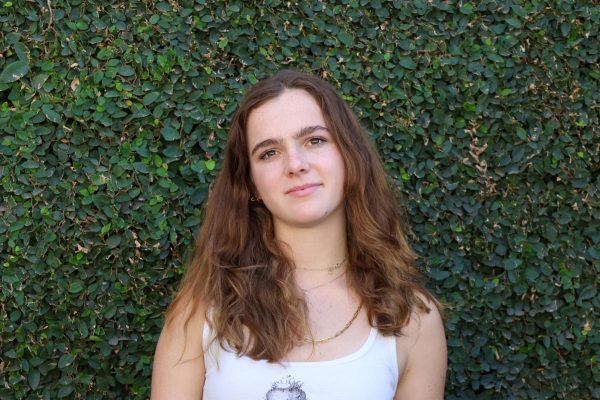“Don’t Worry Darling” Review
An illustration depicts a scene from the movie “Don’t Worry Darling,” where Alice Chambers (Florence Pugh) gives her husband Jack (Harry Styles) a kiss goodbye.
October 14, 2022
Don’t Worry Darling is filled with drama, intrigue, mystery, and speculation— and aside from that, of course, there’s the actual movie. The lead-up to the premiere of the movie was tumultuous, with the gossip surrounding it varying from Harry Styles potentially spitting on Chris Pine to Olivia Wilde and Florence Pugh feuding throughout the filming process. As such, many viewers went into the movie with conflicted feelings, unsure of whether or not it would be worth watching but ready to be entertained either way. Personally, I was excited about the movie but prepared for disappointment, and ended up being right to not assume it was going to be my new favorite movie.
Regardless, I hoped that the star-studded cast and previously formidable director would create a film that was worth recommending. The general premise of the movie was that Alice (Florence Pugh) and Jack (Harry Styles) Chambers live an idyllic life in a remote ‘50s desert town— until Alice realizes there’s something missing in the narrative that she and the other wives are told about where their husbands go every day.
Pugh, predictably, plays the role skillfully and vivaciously, giving her story a depth and complexity that, frankly, makes the rest of the cast pale in comparison. Although the movie primarily focuses on Pugh, Styles is her romantic lead and as such is featured consistently. In scenes where the two are in more of a honeymoon phase, he fills the role effectively with smiles and endearments, but as their relationship becomes more fraught, the juxtaposition between her skillfully crafted expressions and his bursts of anger falls flat. It’s not that he didn’t play the role well— he did what was necessary to advance the storyline and endear himself to the audience in the beginning— it’s just that the role itself didn’t require much profundity.
The storyline was intended to convey an underlying feminist message within a psychological thriller. The issue with this is that the plot lines, which start out as strong and engaging, aren’t tied together in a way that leaves the audience wondering or searching for a deeper meaning. Despite there being questions left unanswered, the movie provided very little room for interpretation and nuance. Quite simply, by the end, the intended message was splattered across the screen for viewers to grasp instantly, which resulted in none of its effects lasting beyond the credits. Regardless, it was an interesting concept that definitely allowed for moments of great acting to shine through (from Pugh).
So, what’s the final verdict on Don’t Worry Darling? To quote the ever-omniscient Harry Styles, “it feels like a movie.”
































